It’s no secret that healthcare costs in the USA can be frightening, with a simple visit to the doctor easily setting you back a couple hundred dollars.
Therefore, I was expecting to pay through the nose (in more ways than one) for a COVID test, and indeed, airport locations are charging hefty rates for pre-departure testing (PDT).
For example, if you wanted to take a rapid antigen test at LAX, you’d pay US$80. At JFK, it’s US$179. At least antigen tests are available over there; SFO only offers PCR tests, and a 60-minute option would cost you US$250!
| ⚠️ Note: From 23 March 2022, free COVID testing will be discontinued due to a cut in funding. The locations mentioned in this article will begin charging for tests from this date. |
But there’s a better solution: the free tests offered at pharmacies and other community locations. These are available to everyone, even non-US residents. I had concerns about whether the results certificate would be valid for travel, but everything went without a hitch.
| 🎾 Tennis Paradise |
Overview: Pre-departure testing in USA
I did a total of three COVID tests in the USA, at three different providers:
- Curative
- CVS
- Total Testing Solutions (TTS)
I’ll talk about each one in a bit, but first, a few general points to note:
- Having a car will be a big convenience, as many testing locations use drive-thru testing. However, it’s not essential
- Most providers require you to book an appointment, although one place I visited (Curative) allowed on-the-spot bookings
- The providers I visited weren’t strict about timings at all; I showed up 2-3 hours ahead of schedule and they accommodated me
- Registration requires a ten-digit US phone number, so it really helps if you have a local SIM card
- Don’t talk about “ARTs” in the US; no one will know what you’re talking about. Instead, say “rapid test”
| ❓ What information must your PDT have? |
|
As per the ICA, your PDT result must not be a handwritten document, and fulfil the following:
I want to draw particular attention to (2), because both Date of Birth and Passport number are acceptable personal identifiers. Therefore it doesn’t matter if your document only has one and not the other. |
I did my testing mostly around the Los Angeles and San Francisco Bay Area, but CVS and Curative have locations all over the US, and the process will be the same regardless.
CVS
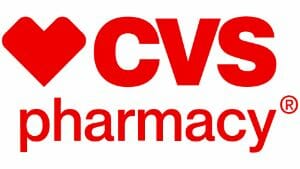 |
|
| Key Information | |
| Tests Offered | PCR/Antigen |
| Appointment Required? | Yes Booking Link |
| Time to Results | 25 hours (PCR) |
| Results Valid for Travel? | Yes |
Registration
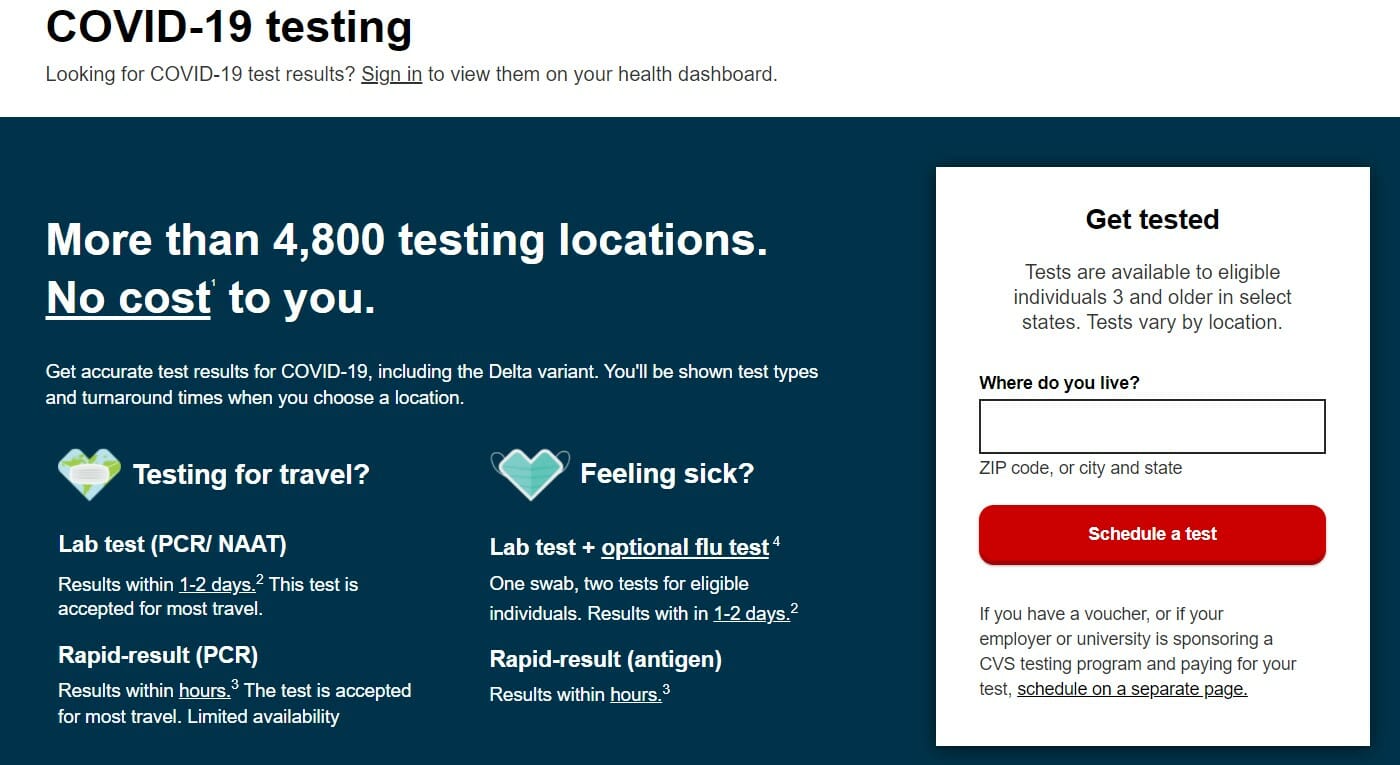
Visit the booking link and enter your ZIP code to find the closest locations. You’ll be asked the following yes/no questions:
- Are you seeking a COVID-19 test because of high transmission rates and difficulty maintaining recommended social distancing?
- In the last 14 days, have you had contact with someone who has a suspected or confirmed case of COVID-19?
- Have you been asked or referred to get tested by a health care provider?
- Have you experienced any symptoms in the last 14 days?
If you answer “no” to all, you’ll be told you’re not eligible for no-cost testing at a CVS location, and referred elsewhere instead. However, most of us could honestly answer “yes” to (1); I’d just attended a week of tennis games in a crowded stadium, after all.
Next, select a testing location and appointment slot that works with you. Remember that you can search for either PCRs or rapid-result tests (aka ARTs) by checking the relevant box.
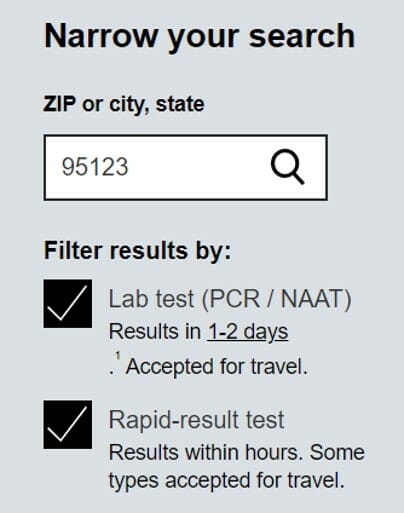
The next step is to enter your personal info. Most of it is self-explanatory, except the health insurance question. For this, select “I’m uninsured”, and leave the rest blank (your travel insurance does not count as health insurance). Leave the social security number field blank.
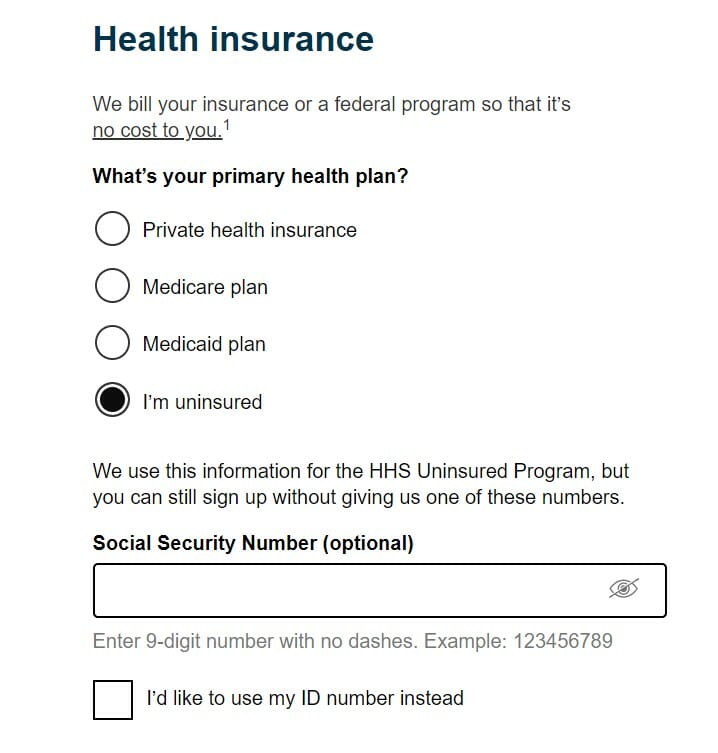
The other piece of advice I’d give is to select “prefer not to answer” to the question about whether you’re received a COVID-19 vaccine. If you select “yes”, you’ll need to enter information about all the dates and brands of your doses. It’s a lot of extra clicks, and not necessary.
Taking the test
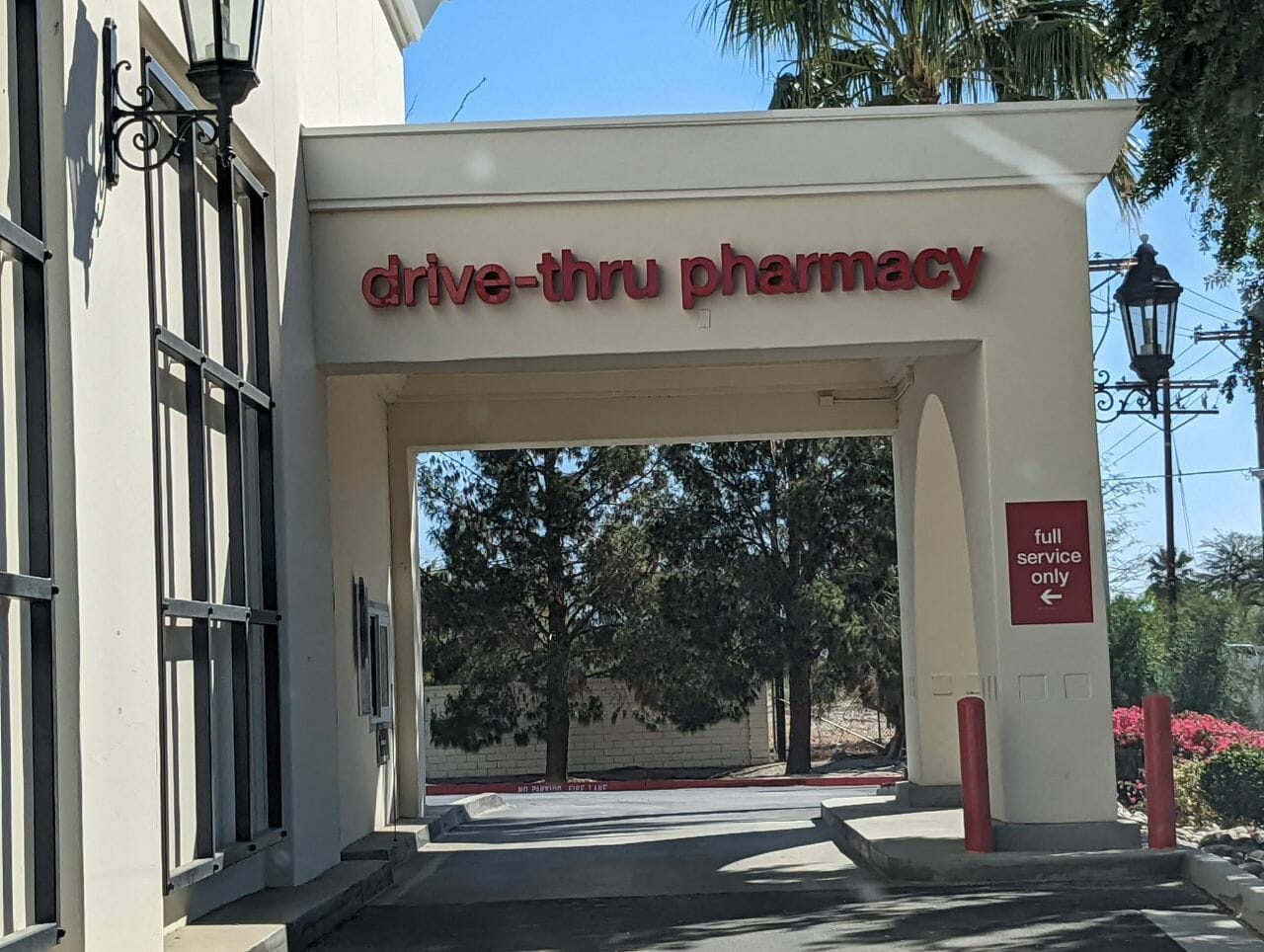
Most if not all CVS tests will be done at the drive-through pharmacy. If you don’t have a car, go inside the pharmacy and ask for assistance.
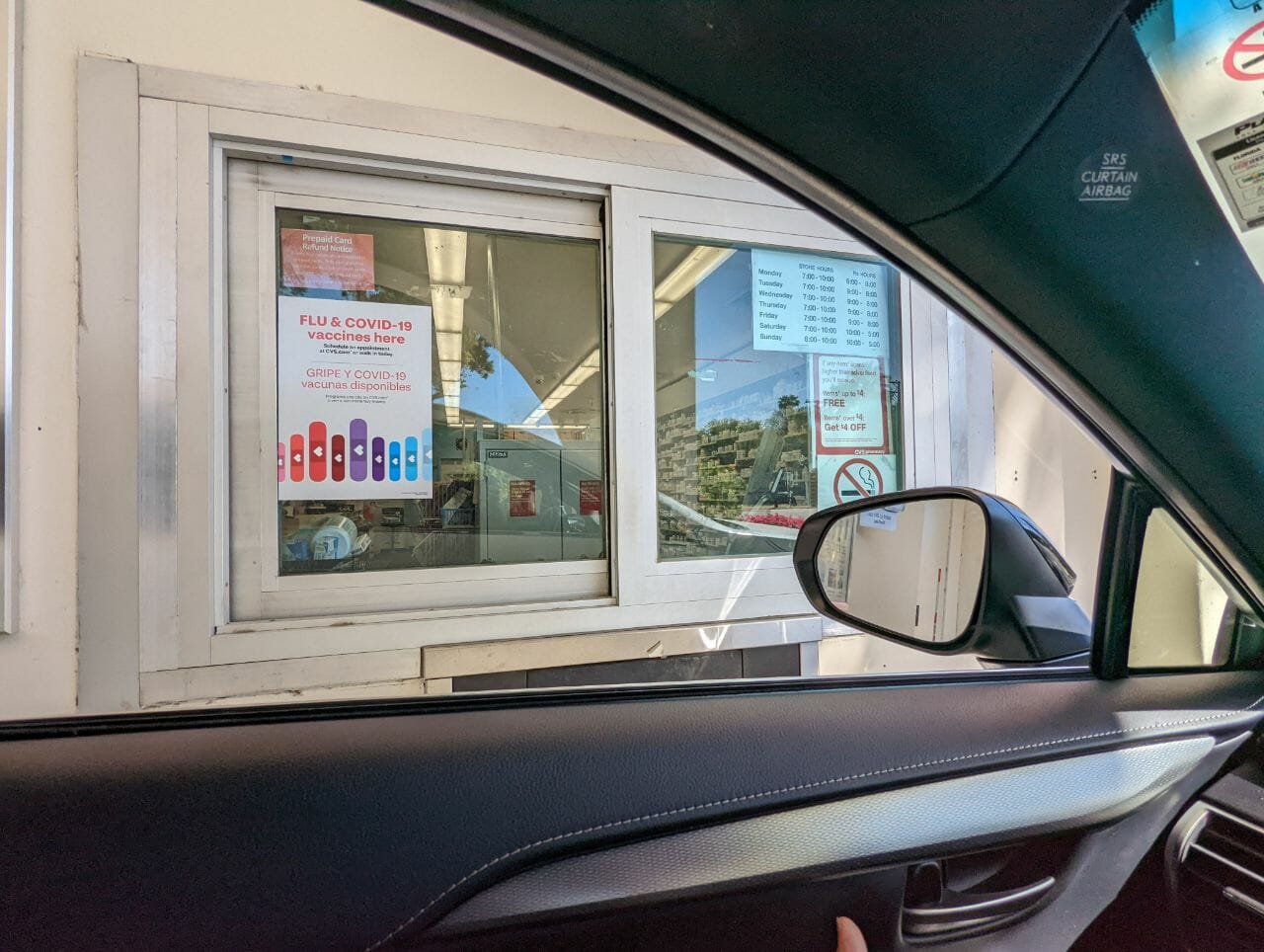
When you pull up to the window, you’ll be asked for your confirmation code. Surprisingly, I wasn’t asked for ID, but I can’t guarantee it’ll be the case for you as well. The staff will confirm your personal details, then pass you a specimen bag to collect your sample. That’s right- whether you choose a PCR or rapid test, you’ll be the one doing the swabbing.

Now, I’m well aware the ICA’s website says that swabs must be administered by a trained professional, but this falls into the grey area of supervised self-swabs. I wouldn’t consider it to be an issue at all, especially when tele-supervised ARTs by CLEA have been successfully used by travellers entering Singapore from Malaysia.
You’ll deposit your sample in a drop-off box, and that’s it.
Results
The results of my CVS PCR test took just over 25 hours to come back. I received a link via SMS which allowed me to view the result on my phone, and also download a PDF copy.
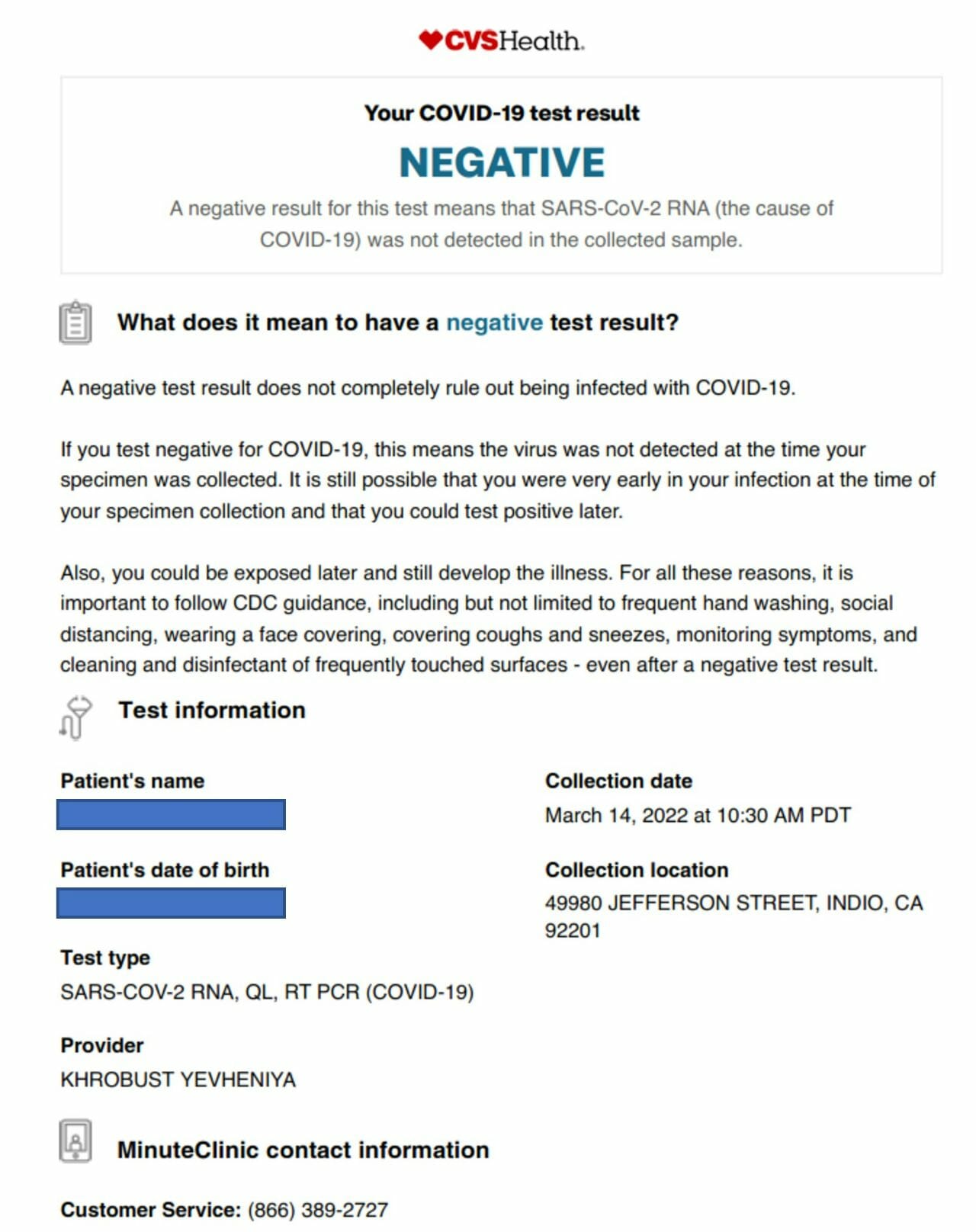
CVS tests do not feature one’s ID number, but as mentioned earlier, the date of birth is an acceptable substitute.
Total Testing Solutions (TTS)
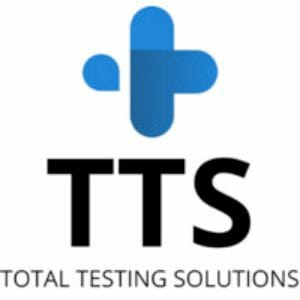 |
|
| Key Information | |
| Tests Offered | PCR/Antigen |
| Appointment Required? | Yes Booking Link |
| Time to Results | 18 minutes (ART) |
| Results Valid for Travel? | Yes |
Registration
TTS has the simplest booking process of all three providers.
Visit the booking link and select a test location and time slot. Under “reason”, select either a PCR or rapid antigen test. Leave the “insurance plan” and “insurance member ID” fields blank.
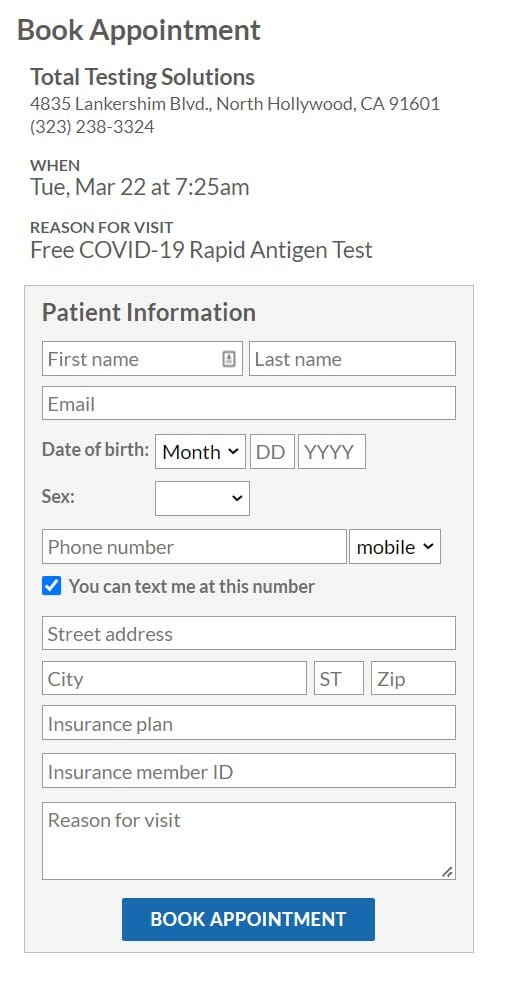
Click book appointment, and that’s it.
Taking the test
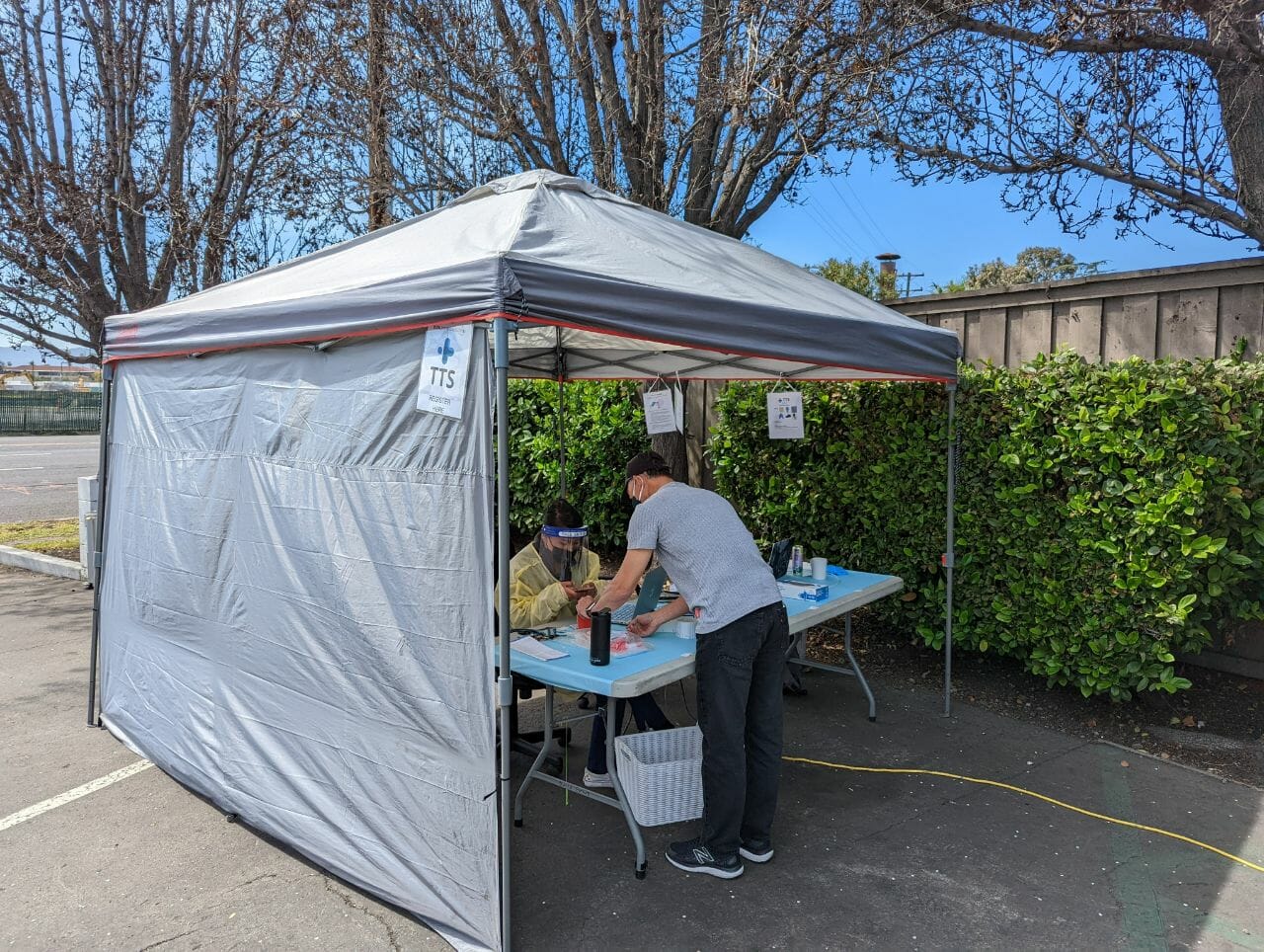
The TTS location I visited was spartan, to say the least. It was nothing more than a tent set up in the carpark of an office park, but on the plus side, there were no queues either. We arrived more than two hours before our selected time slot, but the staff didn’t care.
During registration, be sure to provide your passport and state that you need the test for travel. Make things easy by telling them exactly what to enter as your first and last name; Americans tend to have a hard time with hanyu pinyin names.
You may also be asked about health insurance, to which you can just tell them you’re from overseas.
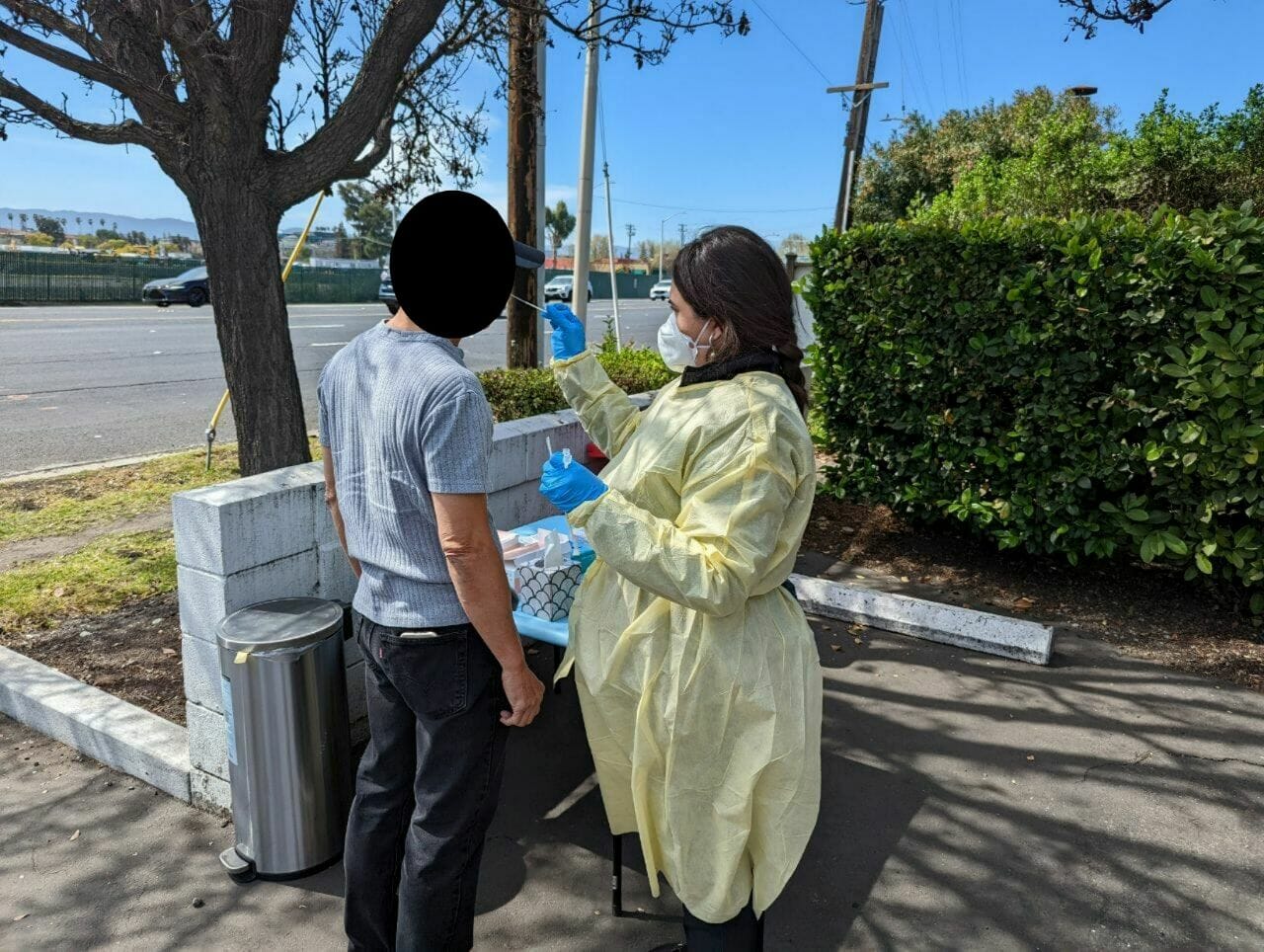
Unlike the other providers I visited, swabbing at TTS was professionally-administered for both PCR and antigen tests.
Results
I was told that the results for my antigen test could take up to four hours to arrive, but I got mine just 18 minutes later. Two emails were sent; the first was a link to a results page with my name, birth date, test date and result date.
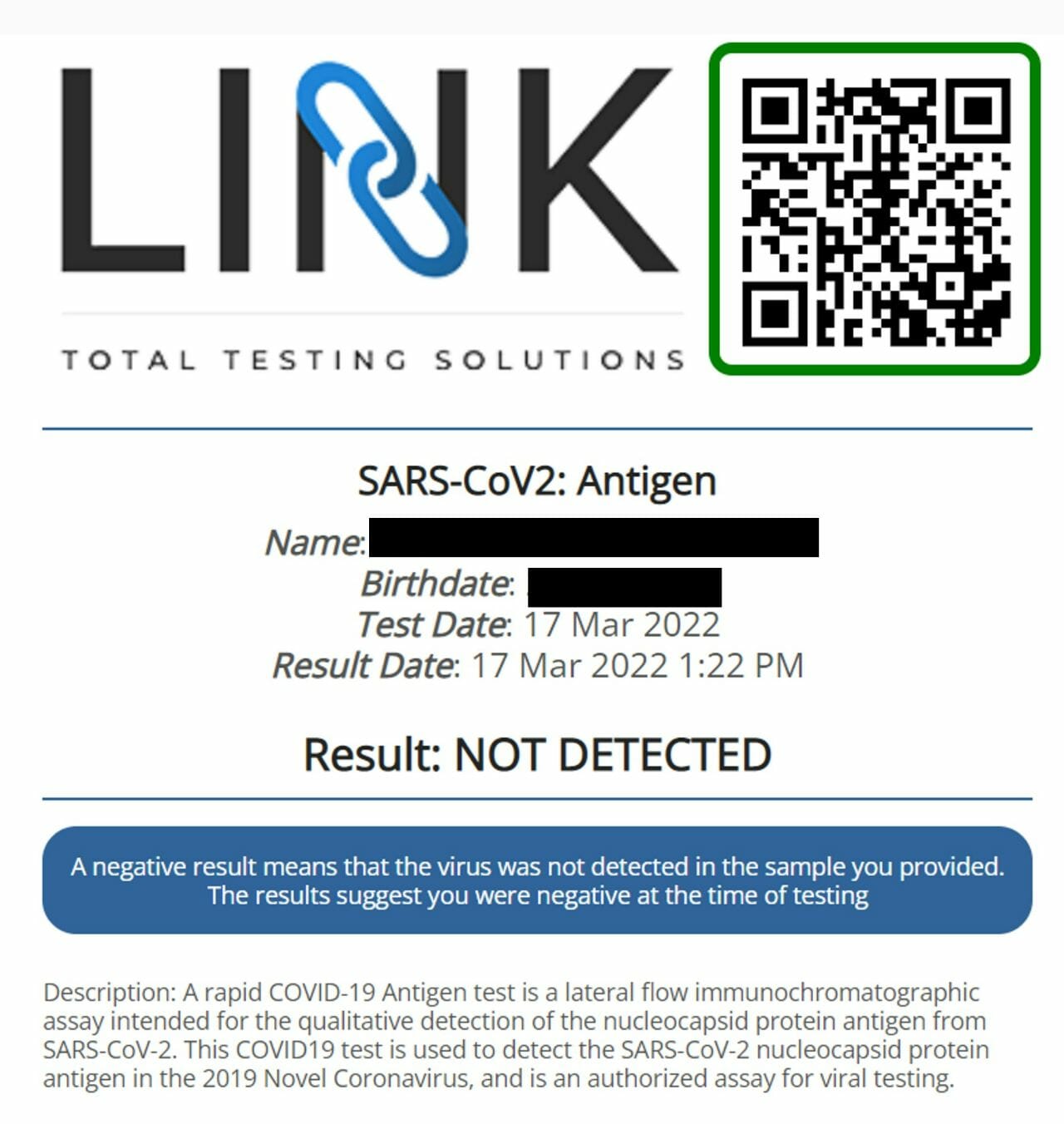
This alone would be sufficient for travel, but I also received a separate PDF with my passport number included and a digital signature.
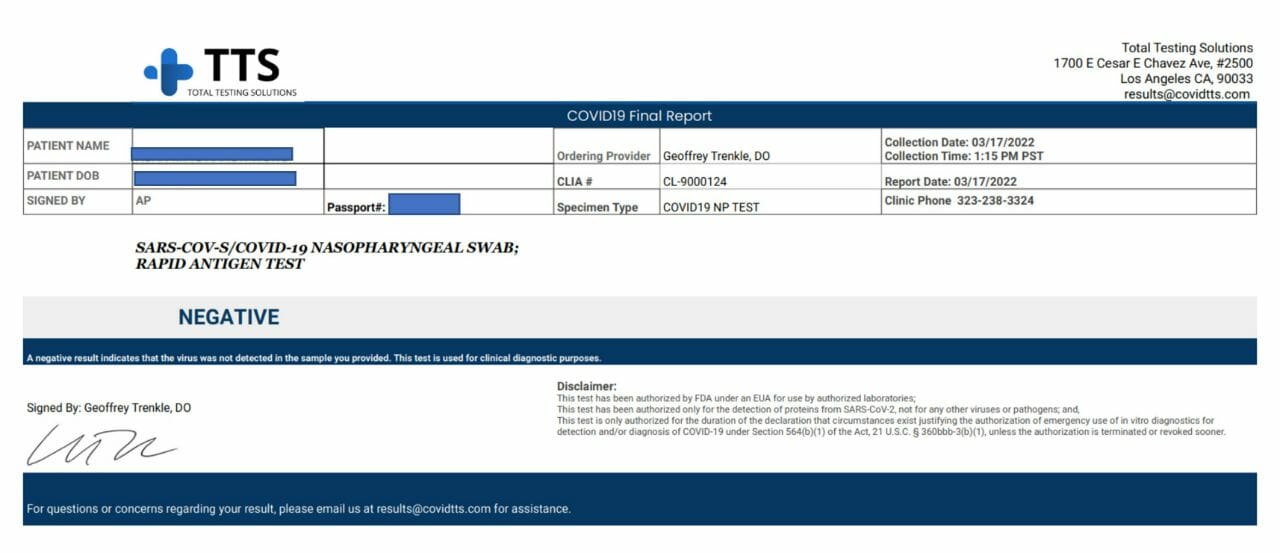
Curative
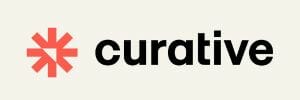 |
|
| Key Information | |
| Test Type | PCR/Antigen |
| Appointment required? | Yes Booking Link |
| Time to Results | 42 hours (PCR) |
| Results Valid for Travel? | Yes |
Registration
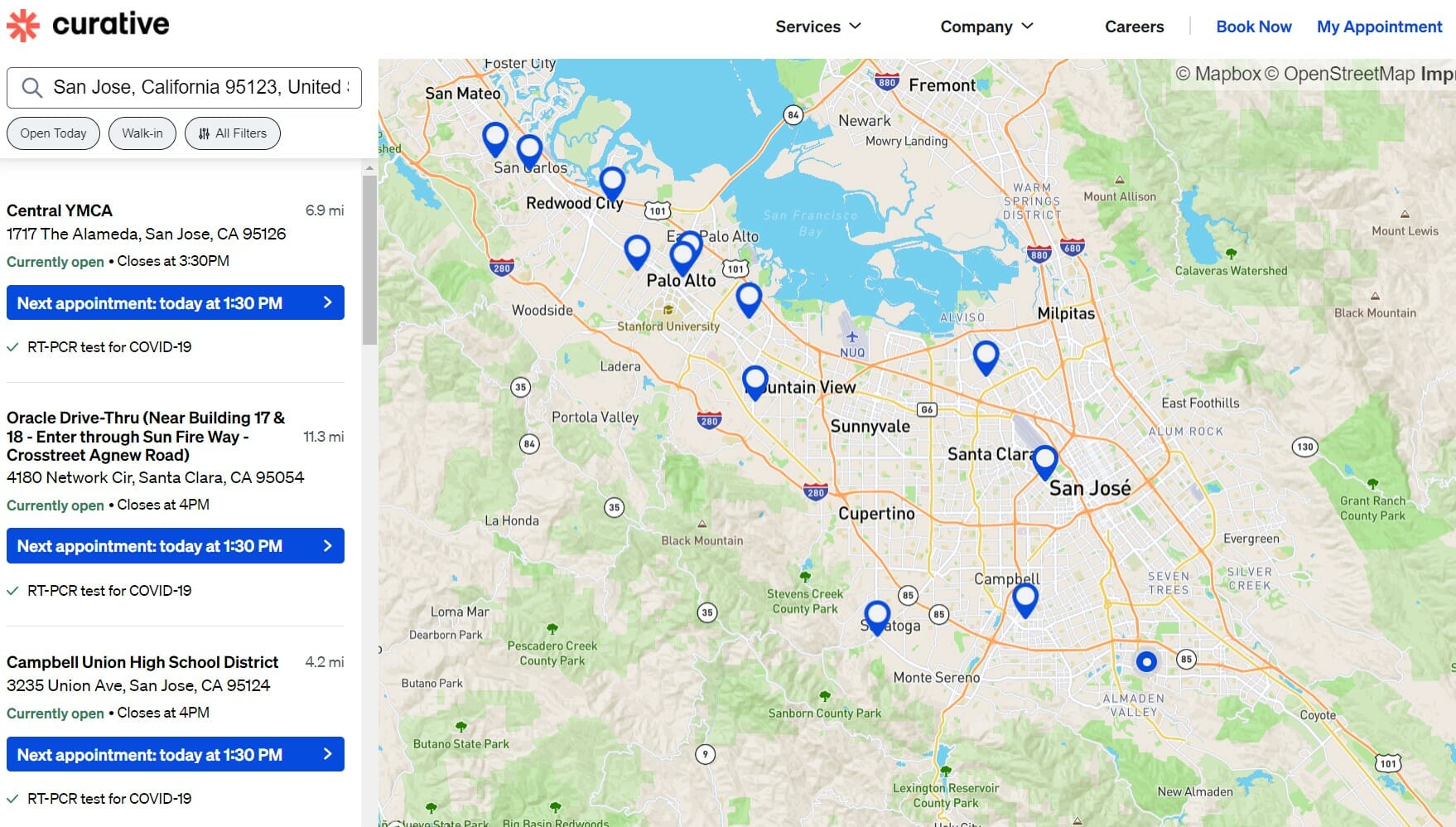
Visit the booking link and enter your ZIP code to find nearby locations.
Once you’ve chosen a location and time slot, you’ll be asked for some personal information, whether you have health insurance (select “no”), and to upload the front and back of your ID (you don’t need to upload anything if you don’t want to).
Taking the test
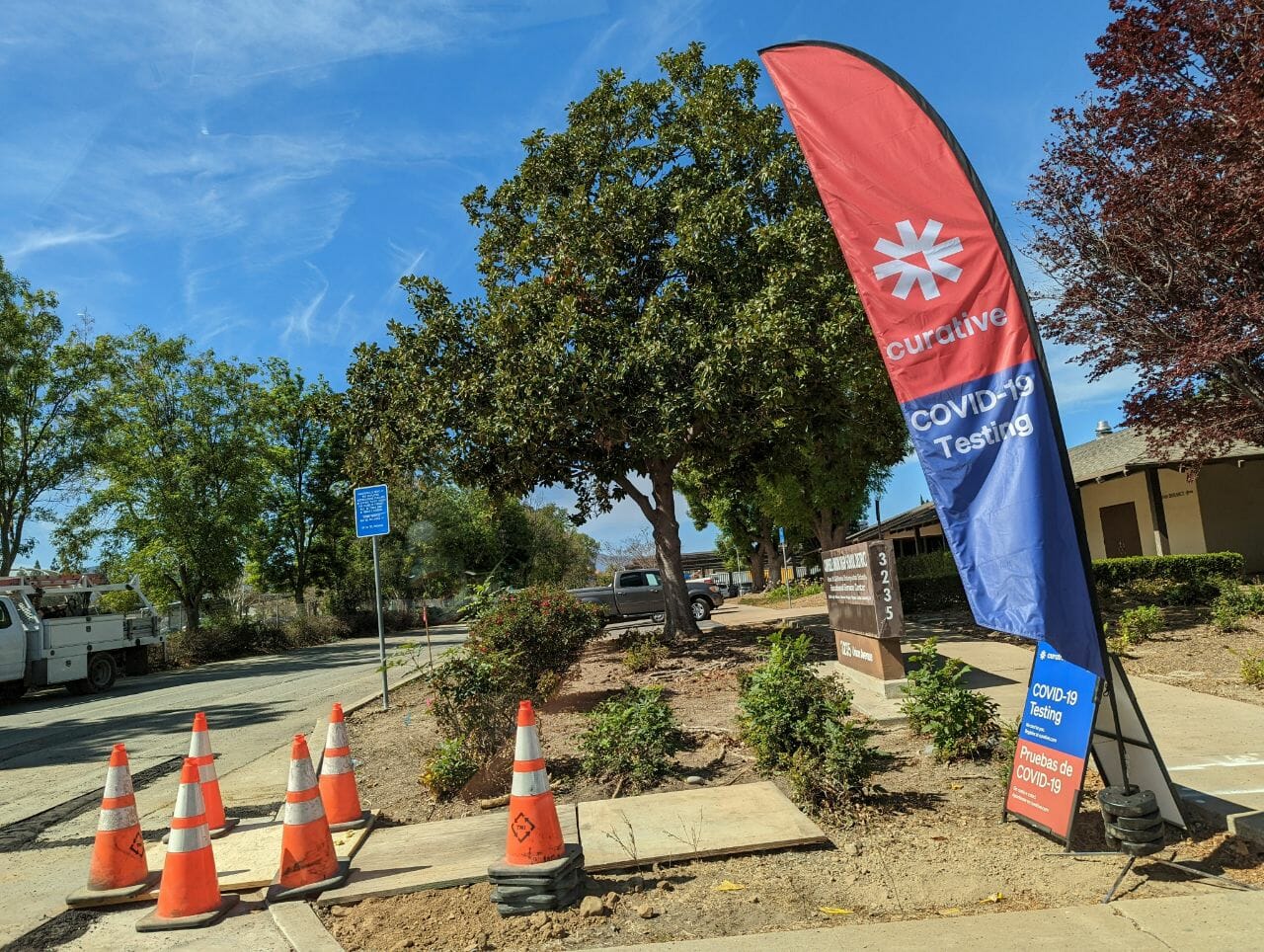
My Curative test took place in the car park of a high school, which was empty due to spring break.
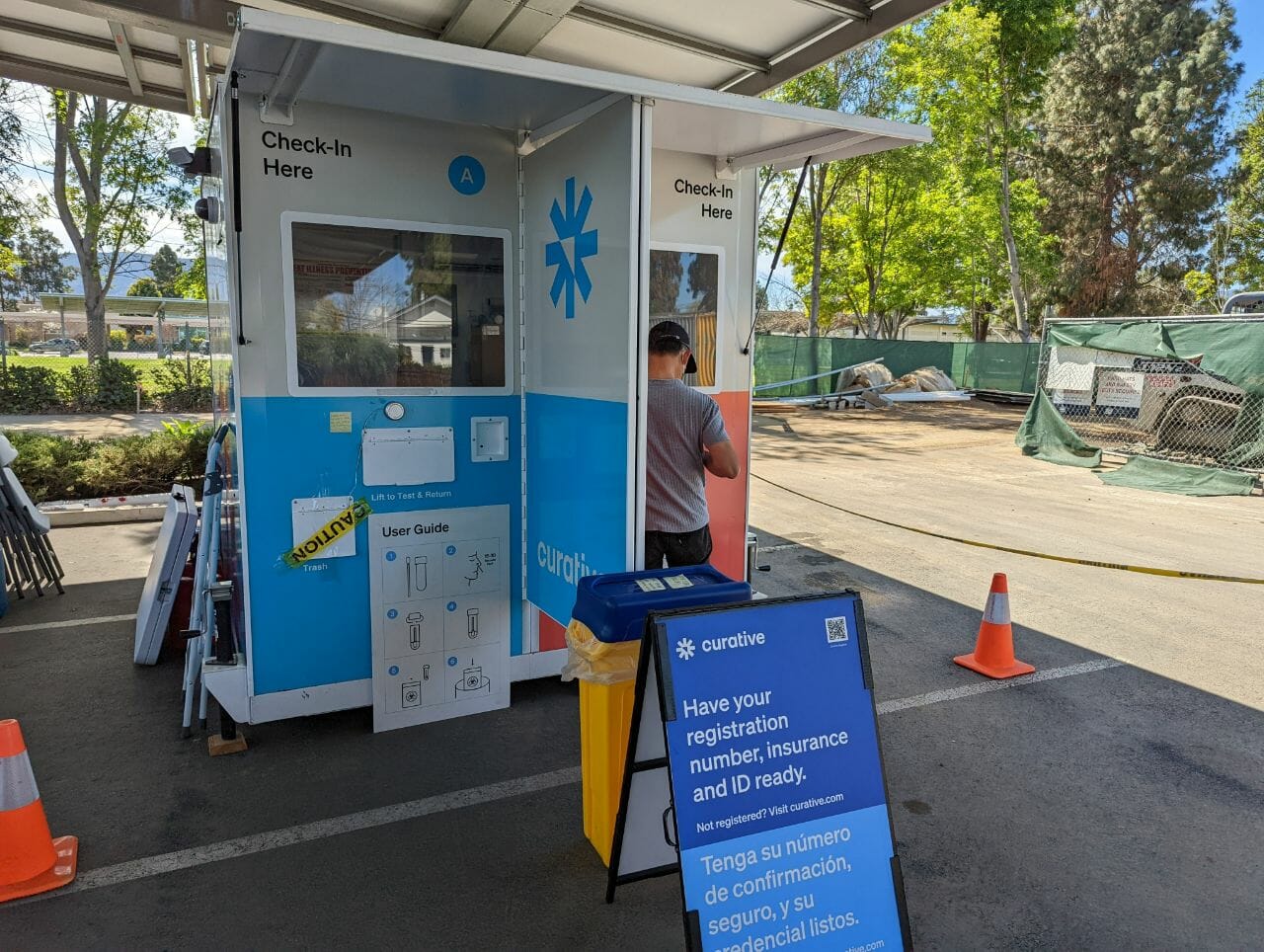
At the booth, the attendant asked for our confirmation code and a photo ID, after which he issued us our test packets.
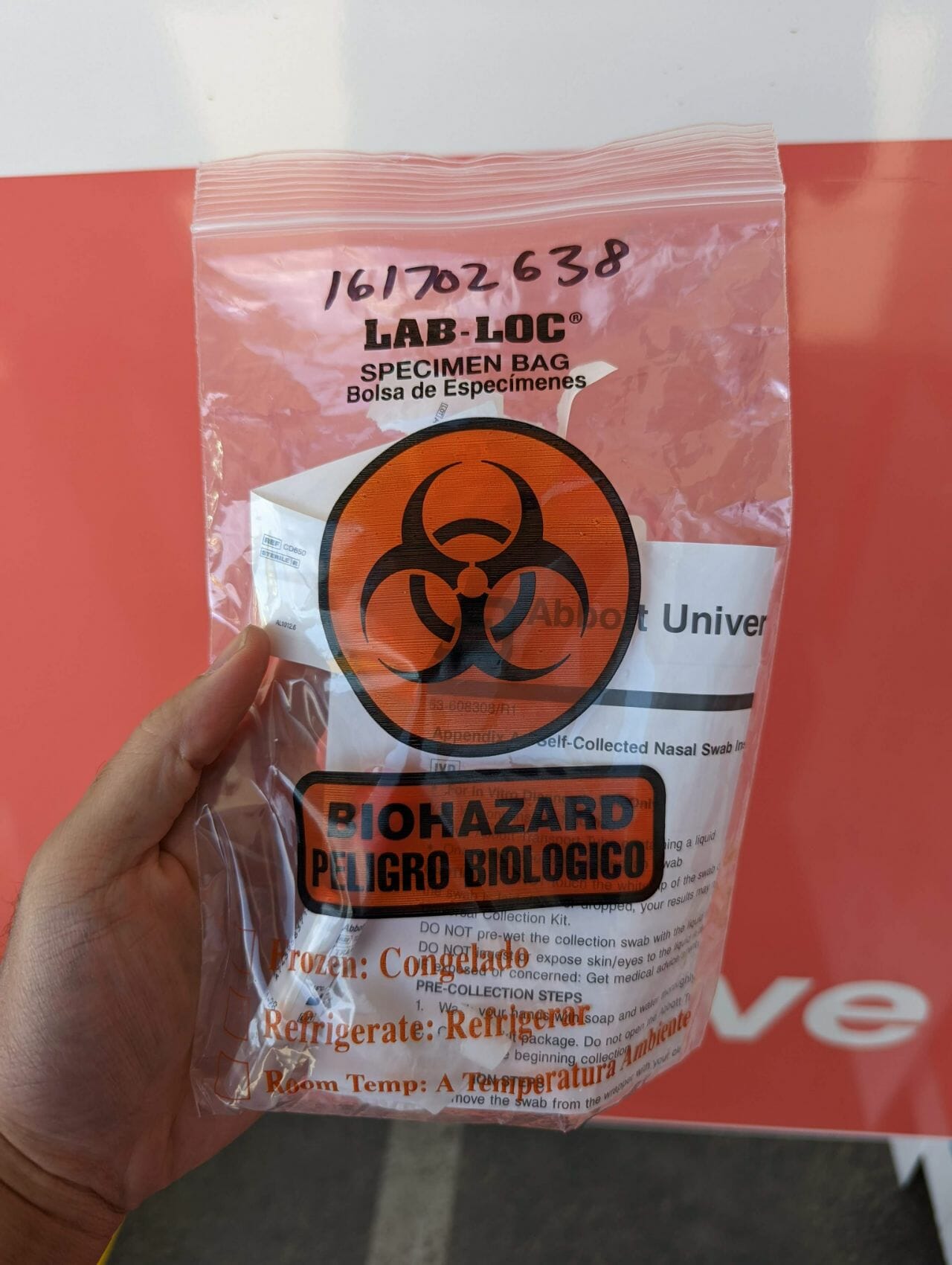
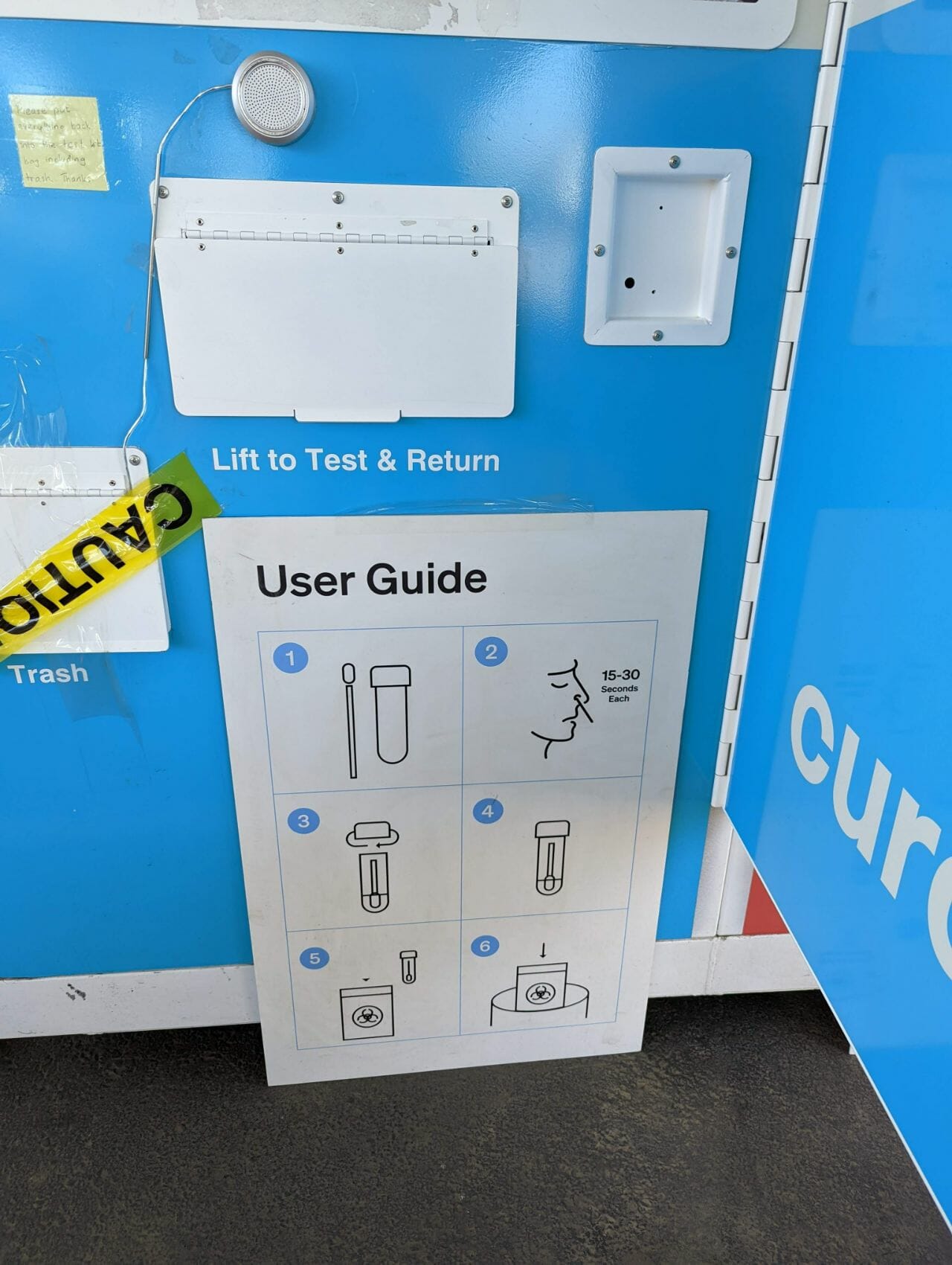
Samples are self-collected, and interestingly enough, Curative also seems to accept registrations on the spot (though the QR code was missing).
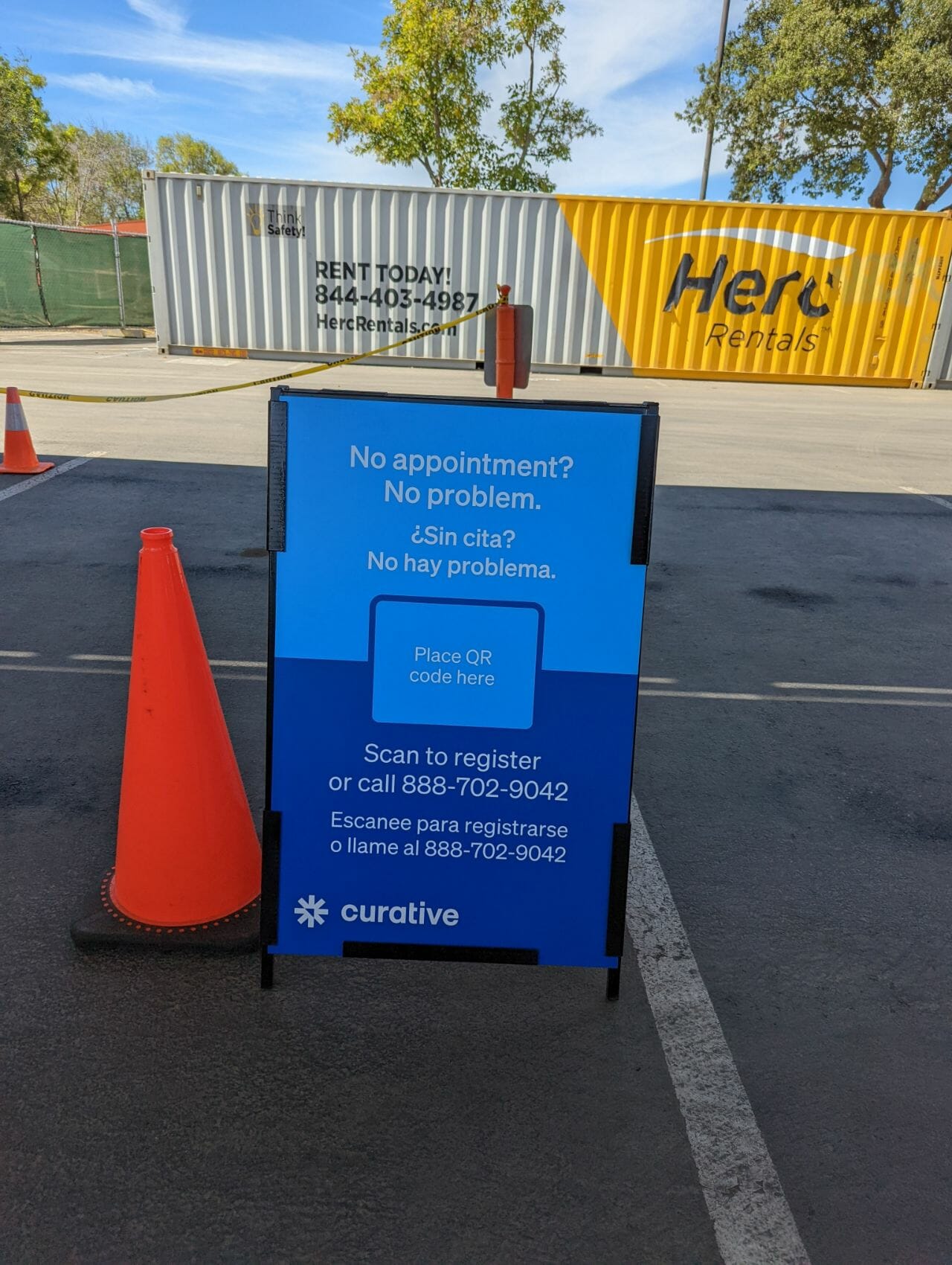
Results
Curative results took the longest to come back, but that could just be my bad luck. I did my swab at 12.40 p.m on 17 March, but the specimen only arrived in the lab at 11.30 p.m on 18 March.
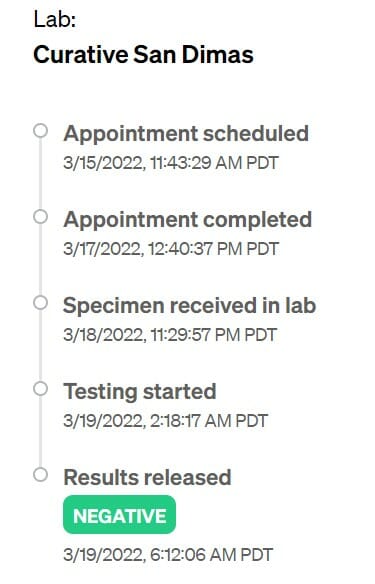
It means my turnaround time was about 42 hours, though your experience could very well differ if your sample is collected soon after it’s taken.
The results certificate had all the information required for travel.
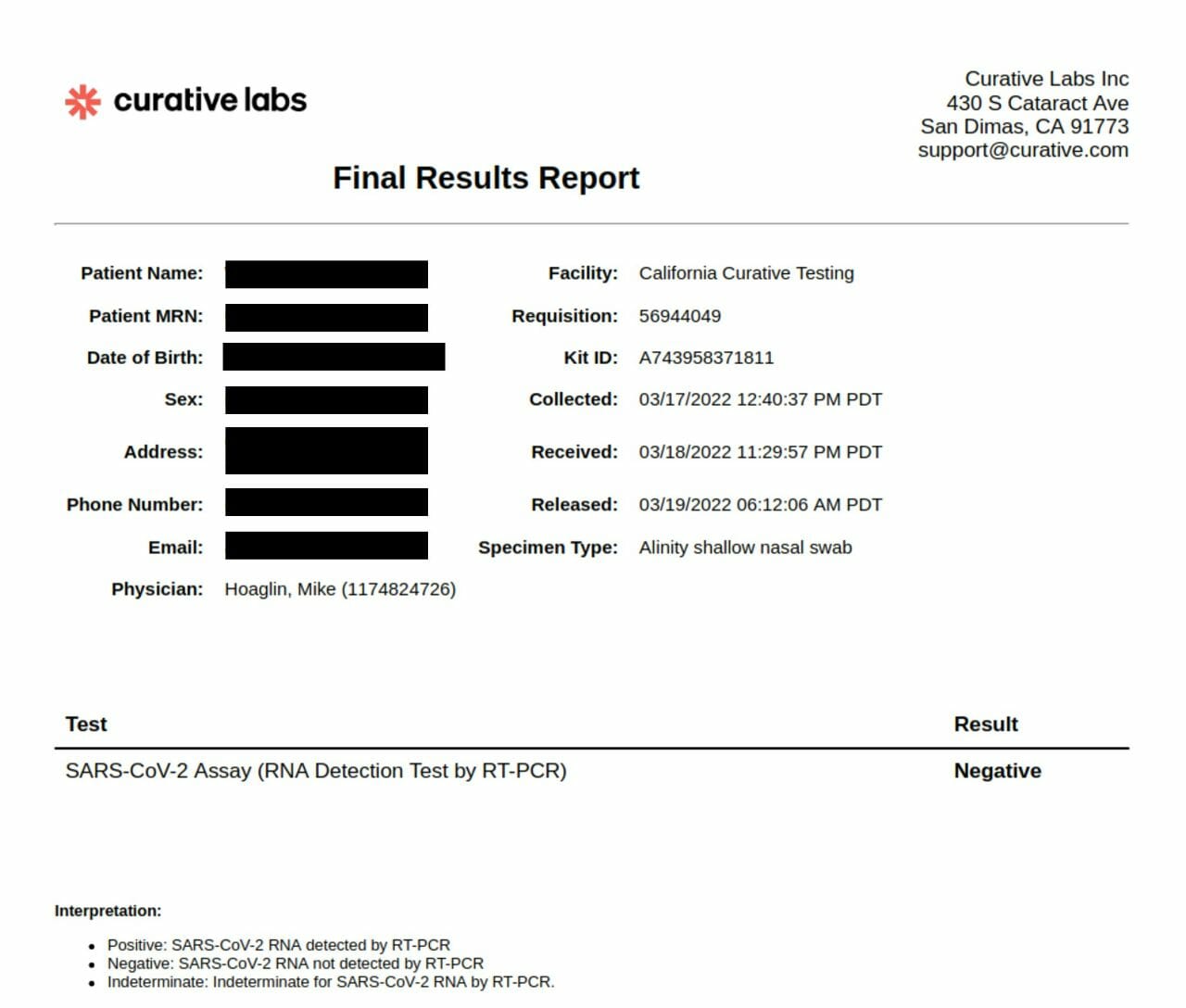
Conclusion
Pre-departure COVID-19 testing in the USA doesn’t need to cost you an arm and a leg, so long as you know where to get it done. Community testing centres are plentiful, and bookings can be done entirely online. All you really need is a local phone number, and to take a little time off your trip to get it done.
I suppose if you really were in a rush, you could also take an tele-supervised ART from Raffles Medical at S$30.
Any other testing centres you’d recommend for the US?

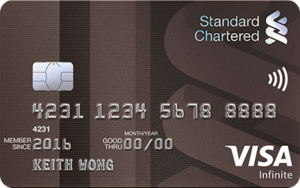
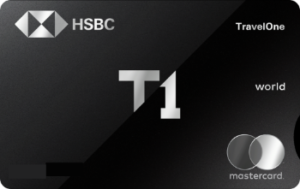
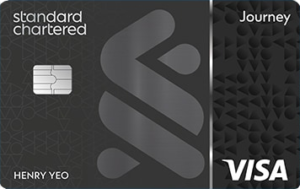

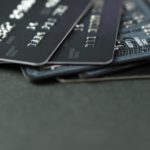

I recommend Cityhealth UC! I took it at downtown SF, but they have branches all over. It was a walk-in, also tent style like TTS. Fuss-free and most importantly free! Results were out in 45 mins 🙂
Did you poke yourself that many times just for this article? haha
well, we figured it’d also be socially responsible to test often, since we were attending high density events (with no mask requirements!)
Would you have done the same if you had to pay for each test?
If it’s free you are the product.
Technically the “free” tests are not free. They are funded by the US government (aka taxpayers) thru the CARES Act. So happen foreigners are eligible to enjoy this perk too
I remember reading somewhere that free testing is allowed only once every 7 days to prevent abuse of the system. I guess this one slipped through.
Anyways, I paid for a US Skype number, which is much cheaper than getting a US prepaid sim card, to receive the SMS. Works just as it should, except you receive the SMS through the Skype app.
I use TextNow free iOS app for free US number. It gives free calls and SMS to US numbers.
Ugh wasted $80 in LAX cause I wasn’t sure if I could do it at CVS
Not all CVS testing will be at pharmacy, btw. Could be outside in a small container too.
i’m now hearing that free testing will lapse soon because it didn’t get new funding…
Yes, the allotted federal funds has been exhausted. It’s not the last chapter in the story for sure.
Individual states might choose to pay or run their own “free” sites – we’ll see.
Meanwhile – should be ways to bring the cost down significantly. Nowadays negotiated rates for rapid tests should be around $20. Full price has stuck at $159, lol.
Maybe pharmacy discount network cards (basically giving access to negotiated rates), or some sort.